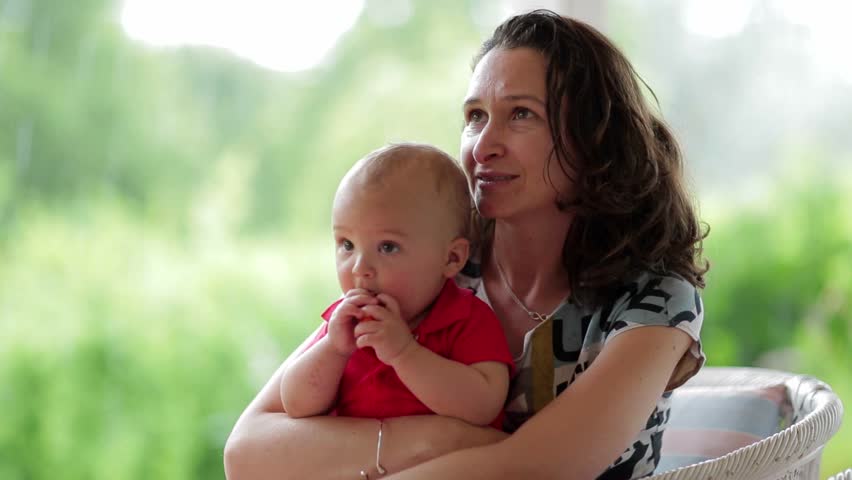Contents:
- Medical Video: Having a baby while on dialysis for kidney failure
- How can parents make difficult medical decisions for a child who has chronic kidney disease?
- How do parents of a child who has kidney disease carry out discipline?
- How should parents talk to their child about the death of a close friend on the dialysis unit?
- How should parents explain kidney disease?
- Can the responsibility of helping parents who have chronic kidney disease be dangerous for young people or adolescents?
- What should the family do if the patient does not take medication and diet guidelines?
Medical Video: Having a baby while on dialysis for kidney failure
How can parents make difficult medical decisions for a child who has chronic kidney disease?
Parents do not have to make decisions about medical treatment alone. A team of health care professionals is there to help make this decision, based on the most recent information. The choices are not always easy, and no one can predict the future. Parents always wonder if they are doing the right thing. It is important to remember that there are no right or wrong answers. Parents must make the best decisions together with members of the health care team. Talking about this issue with other parents who have children with the same conditions will be very helpful.
How do parents of a child who has kidney disease carry out discipline?
All parents worry about how best to raise their children. When a child has a chronic illness, this problem becomes more difficult. Giving up on each child's desires, or not expecting children to have responsibilities at home, often creates short-term and long-term problems. Children need discipline, even though they might argue and get angry. Parents who follow all their children's wishes can make a child grow up to be a prosecutor, spoiled and undisciplined. Discipline children who have kidney failure is not an easy task for parents. Even though parents feel worried and want to protect their children, they must consider the child's development. Children in your family will see and be affected by the treatment given to children with kidney failure.
Talking with other parents who are in the same situation will help. Getting involved in a supportive parent group can help reduce anxiety and worry. One of the most important things to remember is that there are no right or wrong answers. Parents must remember that they are doing the best they can.
How should parents talk to their child about the death of a close friend on the dialysis unit?
Most people are naturally uncomfortable when in this situation. Talk to social workers and nurses in the unit to see how they handle this with other children. Parents should not deny this for fear of making their child more afraid or sad. Although children may not mention death, they don't forget; children can wait for you to start the discussion. Generally, children can express their feelings if given the opportunity. This requires sufficient time, because just one conversation is not enough. Parents must be aware of their own feelings about this loss.
Anyone involved with a deceased child will feel angry and need to talk. Communication must continue to be open with your child and with staff. You and your child may need to talk to a social worker if your child's sadness or fear becomes too difficult for you to handle yourself. If you are worried about how your child's medical development develops, ask your doctor for certainty.
How should parents explain kidney disease?
Parents with kidney disease can affect their lives and their children. Openly discussing illness and treatment with children, at a level they can understand, can help prevent them from developing a sense of fear and misunderstanding. Children may have "terrible" thoughts about the things they have done or said and blamed themselves for their parents' illness, which can cause problems in the future.
Often, children may begin to behave differently after parents are diagnosed with kidney failure. Sometimes, they start acting like "little adults" or "perfect angels." At other times, they start to be naughty and have problems at school. This is the way children deal with parental diseases and their concerns about the disease. Parents who feel unable to talk to their children should talk to a social worker at a dialysis unit or transplant clinic. Social workers may be able to help both parents and children to learn how to talk openly about medication and the fears associated with the disease. Social workers can refer families to family therapists or to child therapists.
Can the responsibility of helping parents who have chronic kidney disease be dangerous for young people or adolescents?
Although children or adolescents may be willing to help parents who learn to adapt to the lives of chronic diseases (and sometimes accompanied by disability), this can cause problems in the long run. The child may begin to feel responsible for parents, leading to the reversal of roles between parents and children. When parents have a problem, the child feels guilty.
In its growth, children must learn to separate themselves from parents. This is a difficult task in situations where the parent has a chronic illness because the child may feel he or she is neglecting the task of helping the parent. In some cases, children may rebel against disease completely, causing severe family problems. Parents must seek help from a friend or community institution. Public health agencies and social welfare institutions and local health agencies may be able to help provide assistance regarding personal care and domestic work. This allows children to grow normally with parents who still play a role as parents.
What is the best way to help elderly parents who have chronic kidney disease?
The experience of having elderly parents with chronic diseases can be difficult. Someone who is accustomed to independence may find it difficult to accept a decline in his health. However, some people may be quite capable of being independent while on dialysis, and their adult children can offer help before being needed. In many families, role exchanges occur because getting older, parents will become weaker and more dependent. Caring for them with respect while, at the same time, taking responsibility for their care, requires balance, patience, sensitivity and openness.
Often one adult child becomes the main nurse for parents. This can be a burden if other siblings are not a source of support and provide assistance in other aspects of care.
Talking about what happens to all family members can help. A social worker can help facilitate family meetings if family members have difficulty speaking together. The ideal situation is to have the support of the whole family, not just one person. Joint planning for daily needs such as cooking, cleaning, transportation and paying bills can help ensure family cohesiveness.
Adult children can help by going to a meeting at a dialysis clinic, learning about kidney disease and its treatment and allowing parents to talk freely about their concerns. They can also help parents deal with confusing things such as medical regimens. They should also encourage parents to continue activities as normal as possible, such as attending church meetings, doing their hobbies, traveling and visiting family and friends.
What should the family do if the patient does not take medication and diet guidelines?
Families often misinterpret love by caring for patients. Even with good intentions, they can look after the patient and make him dependent by taking too much responsibility for the patient's behavior. Generally, patients feel more valued when they take control of their own behavior. The following suggestions can help to avoid this problem:
- Families and staff must be aware that patients have disease and control over food, fluids and medicines. No one else can take this control.
- In many cases, patients will begin to obey if the family clearly states their concerns and limits of responsibility.
- Being a good caregiver is considered a form of love. However, arguing with patients regarding diet, fluid and medication problems coupled with the desire to take control; feeling responsible and "better than" the patient, will only make the patient angry and even less cooperative.
- Family members need to ensure that they do not make the patient's condition more difficult while ensuring the course of treatment and do not offer food or fluids that are not written in the diet.












